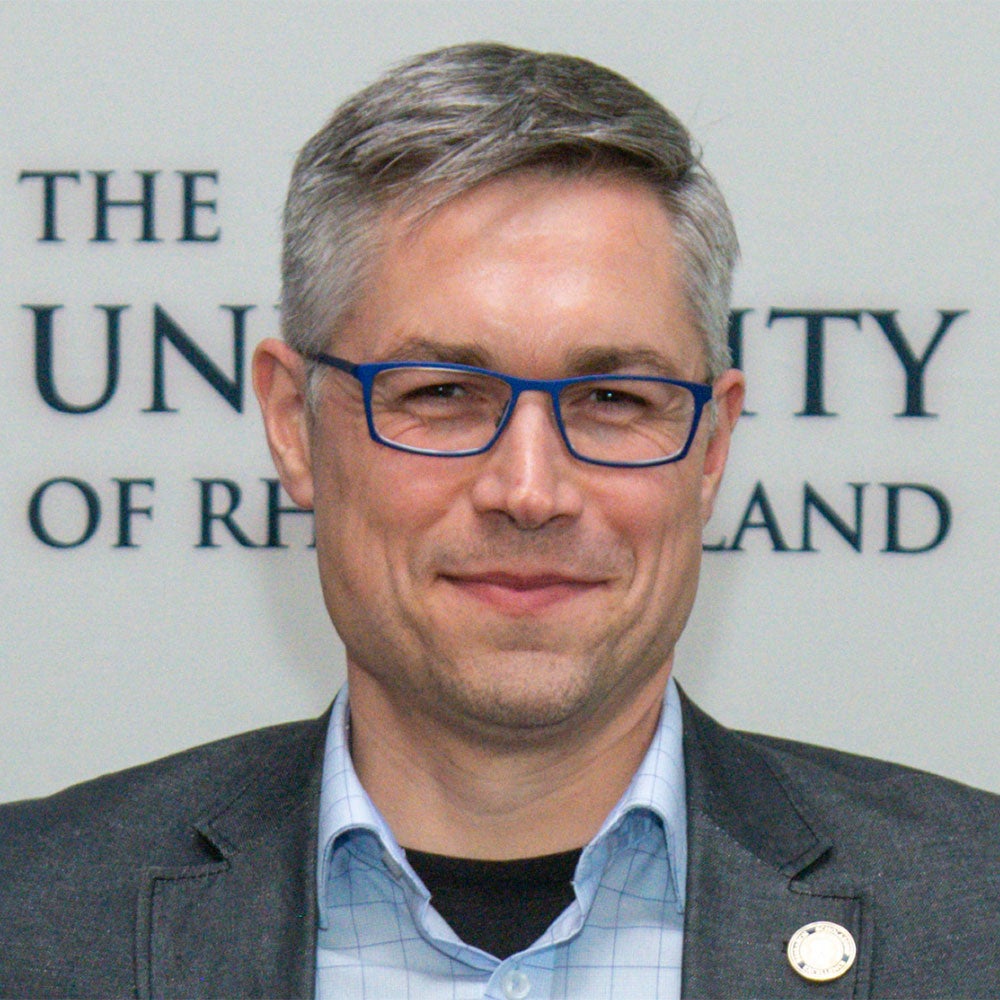KINGSTON, R.I. – Oct. 7th, 2024 – Dr. Jason Dwyer, professor of chemistry at the University of Rhode Island College of Arts and Sciences, and founder of the Dwyer Research Group, has been named the recipient of the AES Electrophoresis Society’s Mid-Career Award. This award honors exceptional contributions to the field of electrophoresis, microfluidics, and related areas by an individual who is currently in the middle of their career.
He is also author or co-author on more than 50 peer-reviewed publications and 5 issued patents, a career that spans across Canada, Germany, and the United States, and is a devoted scientist and educator. “I’m an adherent of doing science in service to society. Both research and teaching are a part of that, and I try to pass this ethos of service on to the next generation,” said Dwyer.
For novice scientists, what do you research?
In the broadest sense, we’re interested in how the molecular world works, and then turning that into tools to improve human health. We do chemistry research and combine it with an engineering and entrepreneurial mindset, drawing on a variety of different approaches–materials science, nanofabrication, signal processing–to weave everything together. This award recognizes our signature work in sensing and manipulating single molecules using a really wonderful tool called a nanopore. A nanopore can be thought of as a test tube that’s been miniaturized to hold a single molecule at a time so that we can better study it. Unsurprisingly, while nanopores are made by a special nanofabrication process, they require molecular-level optimization to meet the sensing challenge, and we hold several U.S. patents in this area. We’re really interested in an incredibly challenging class of molecules called glycans–a class that includes the blood cell markers that determine blood type, the clinical anticoagulant heparin, hyaluronic acid in cosmetics, and sodium alginate in a myriad of food products. While these molecules are a vital component of biological communication pathways, they are incredibly difficult to analyze by conventional chemical analysis tools. We’re developing new technology to characterize glycans so that we can better unravel their biological function, leading to better disease diagnosis and treatment.
What does this award mean to you as a part of the URI community?
I’m really glad that you asked this question in this way, because while these sorts of awards tend to single out individuals, the work has benefitted from the contributions of many. The state taxpayers, along with key chemistry building donor Richard Beaupre, have given us amazing facilities in which to do this work, and with which to attract the student researchers who do the hands-on work. Colleagues have been generous with their expertise, particularly the Kiesewetter group who transformed our drawings of molecules into vials of chemicals that we could use, and shared insights about our results.
What are your future goals as a scientist and educator?
Early in my career I co-founded and directed the research and development effort for a nanotechnology startup, and I’ve consulted for a variety of start-up and mid-size science and technology companies. My current goals are to continue to further develop our nanopore technology towards commercialization while also contributing my experience and perspective towards growing, on a campus-wide basis, the connection between university researchers and commercial and societal outlets for their discoveries and creations.
How do you hope this impacts your students?
Doing research in academia–even with the application- and development-oriented focus we have–can often be tremendously challenging, and I hope that my students feel a glow of accomplishment when they reflect on this award. I’m proud that my graduated students have found success in both academia and industry where they’re using their training to broaden the horizons of human knowledge and engineering products that are making a difference in people’s lives today. I hope that this award is a joyful, bonus reaffirmation for them that it’s worthwhile to do meaningful things and to do them well–even more as a part of a community.
Dwyer will be receiving the award at this year’s SciX conference, to be held from October 20 through October 25, in Raleigh, North Carolina. Read more about the award and a reflection on his career via Spectroscopy.

